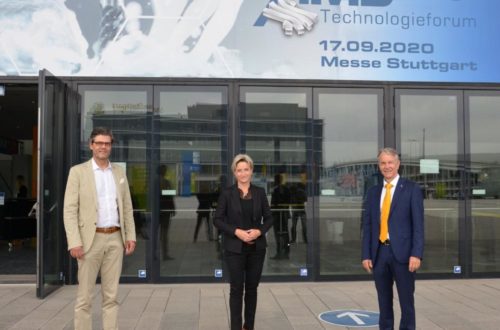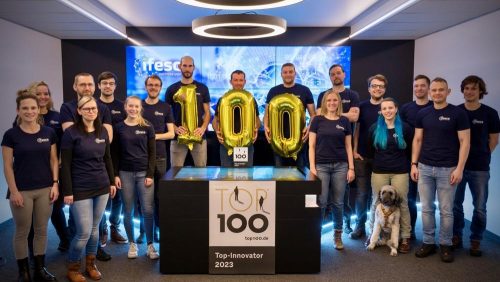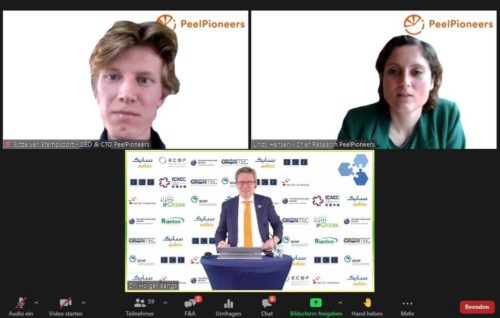The natural path to net-zero emissions:eurammon Symposium 2021
The natural path to net-zero emissions
Net-zero emissions are necessary to prevent climate change and the increasing global temperature.Acutely aware of this situation, eurammon proposes taking action. “Our own sector can play a part in this by moving away for high global warming synthetic refrigerants to natural fluids”, says eurammon Chairman Michael Freiherr. “By doing so, we can reducethe potential for global warming gas emissions through leakage but also have the opportunity to improve energy efficiency.”
Politicians, international organizations, operators, plannersand system engineers –they all came together virtually to discuss solutions and share insights and case studies regarding the natural path to net-zero emissions. The importance of this event is clear, in light of the fact that energy consumption levels for refrigeration and air-conditioning are expected to double by 2030. The core issue the symposium was to address was how efficient climate-friendly cooling could support the energy sector’s transition to net-zero emissions. Data was another issue addressed that is becoming more and more prominent –as businesses seek to analyze system performance and strive to ensure ongoing efficient operation to minimize environmental impact and energy consumption. Performance monitoring systems are available that can track efficiency in real time and provide insights into areas where improvements need to be made.
Day 1: Keynote speeches
Each day was dedicated to a specific topic around achieving net-zero emissions. The first day focused on brief introductory keynote speeches, starting with a political policy lecture concerning the European Green Deal. The topic deepened the legal basis of the discussion about achieving net-zero emissions. The next speech examined whether governments’ largely technology-based policies were likely to have the desired outcomes, such as the ambitions of the 2016 Paris Agreement to achieve net-zero greenhouse gas (GHG) emissions by 2050. The discussion focused on the question of whether the concept known as “decarbonization” was adequate, or just another form of “greenwash”. When urbanity meets sustainability: the last presentation took the audience to the future and visualized net-zero towns and cities, exploring the role green urbanity would play in facing climate change.
Day 2: Supermarkets with system integration of heating and cooling
Day two brought experts together to discuss the topic of “supermarkets with system integration of heating and cooling” in greater depth. Supermarkets across the world are moving to natural refrigerants as carbon dioxide becomes the fluid of choice in Europe. The path to net-zero supermarkets is realistic but will require different levers –e.g. efficient refrigeration systems, smart energy management, continuous monitoring through the Internet of Things (IoT). In addition to discussing R744 (a refrigerant) natural system concepts, including a demonstration of the online platform Frigodata Online 2.0, the speaker touched on the topic of sector coupling.
Day 3: Training in RACHP
The third day of the Symposium was devoted to the topic of “training in RACHP”. RACHP stands for refrigeration, air conditioning and heat pumps. The presentations included e-learning programmes such as REAL Alternatives 4 Life to a secondary systems manual. Discussions also explored the importance of good installation practices, the maintenance of high-efficiency systems and the challenges associated with training in RACHP.
Day 4: Temperature-controlled warehousing
Day four of the Symposium showcased innovation and some of the challenges facing the temperature-controlled warehousing sector. Is equipment working the way the designers intended? Every system has some opportunity for optimization, whether it is an existing plant or even recently commissioned equipment. Speakers focused on methods of reducing energy consumption through a mixture of new system technology and software analysis. Benchmarking shows that by focusing on improving energy consumption, it is possible to reduce consumption by as much as 88% comparedto the current European average. The use of ammonia refrigeration systems along with modern system design and controls will be key to achieving this. Ongoing performance monitoring and optimization has also been shown to deliver CO2 and financial savings in the temperature-controlled warehouse sector.
Day 5: Cooling and heating for food and beverage production anddistrict cooling/heating
The final topic of the event was cooling and heating for food and beverage production, district cooling/heating. The four different presentations highlighted the use of thermal ice storage in cooling systems as well as the importance of heat pumps and the opportunities they bring.The move away from gas and coal to electrically driven heating will be a key step to achieving net zero in towns and cities. Examples of large heat pumps systems using river water and waste process heat from food factories were presented along with systems that are at the planning stages. To achieve net zero, thousands of these systems will need to be installed between now and 2050.
The Symposium consensus was that Covid had provided a break, enabling everybody to begin again withbuilding a better tomorrow, to work towards a future marked by reductions in energy consumption and the emission of global warming gases such as carbon dioxide. The growing interest in net-zero emissions was reflected in the event’s lively discussions andlarge number of participants: more than 16 exciting speeches, subsequent discussions and around 400 participants, who greatly enhanced the virtual Symposium 2021.
eurammon e. V. is a registered association in which companies, institutions and individuals committed to the increased use ofnatural refrigerants have joined forces. As a centre of competence for the use of natural refrigerants in refrigeration technology, the association sees its task as providing a platform for information and exchange and increasing the level of awareness and acceptance of natural refrigerants. The aim is to promote their use in the interest of a healthy environment and thus to further develop sustainable management in refrigeration. eurammon provides comprehensive information to experts, politicians and the general public on all aspects of natural refrigerants and is available to all interested parties as a competent contact. For users and planners of refrigeration projects, eurammon provides concrete project experience as well as extensive information material and advises them on all questions related to planning, approval and operation of refrigeration systems. eurammon e. V. was founded as an initiative in 1996 and registered as an association in 2018. The association is open to companies and institutions in the field of natural refrigerants, but also to individuals, for example from science and research.
eurammon e.V.
Lyoner Straße 18
60528 Frankfurt
Telefon: +49 (69) 6603-1277
Telefax: +49 (69) 6603-2276
http://www.eurammon.com
Kontx Kommunikation GmbH
Telefon: +49 (151) 291133-73
E-Mail: bettina.gebhardt@kontx.de
Geschäftsführerin
Telefon: +49 (69) 6603-1277
Fax: +49 (69) 6603-2276
E-Mail: karin.jahn@vdma.org
![]()




